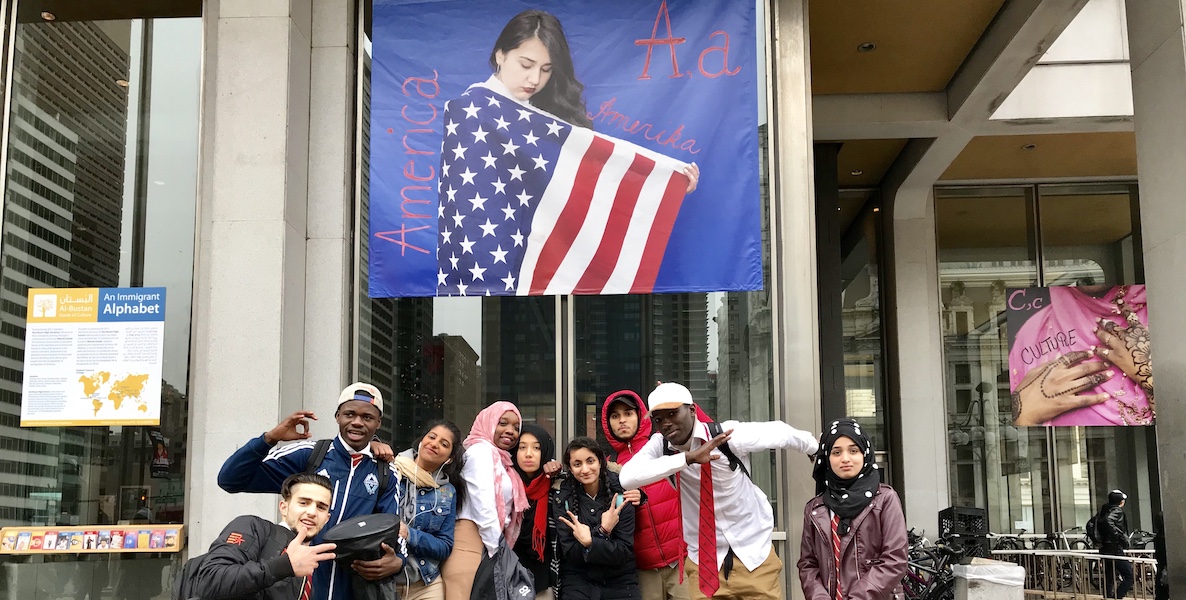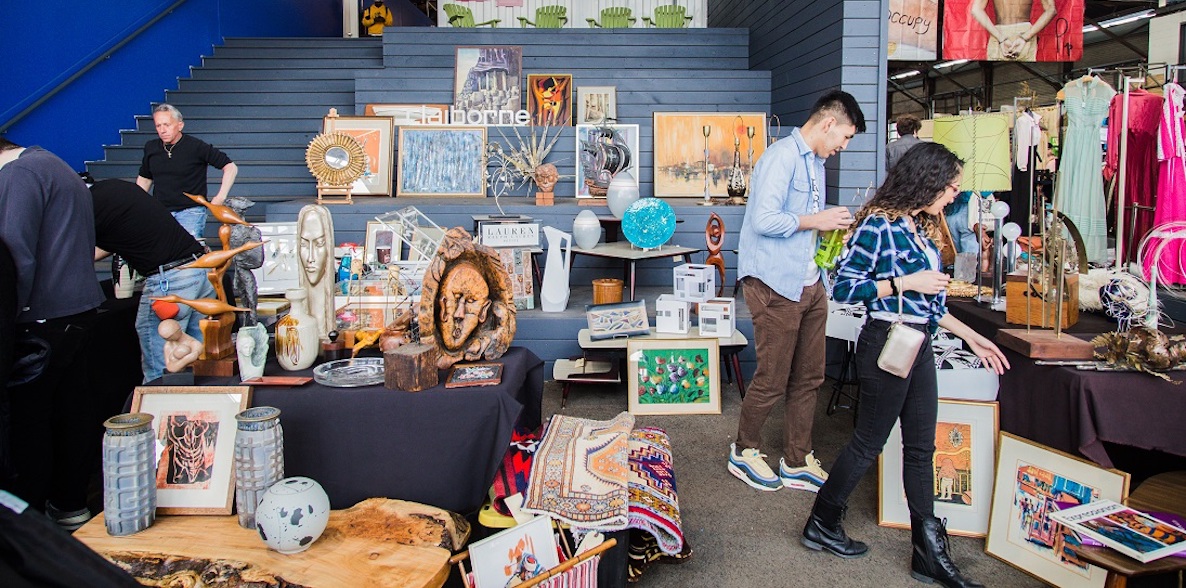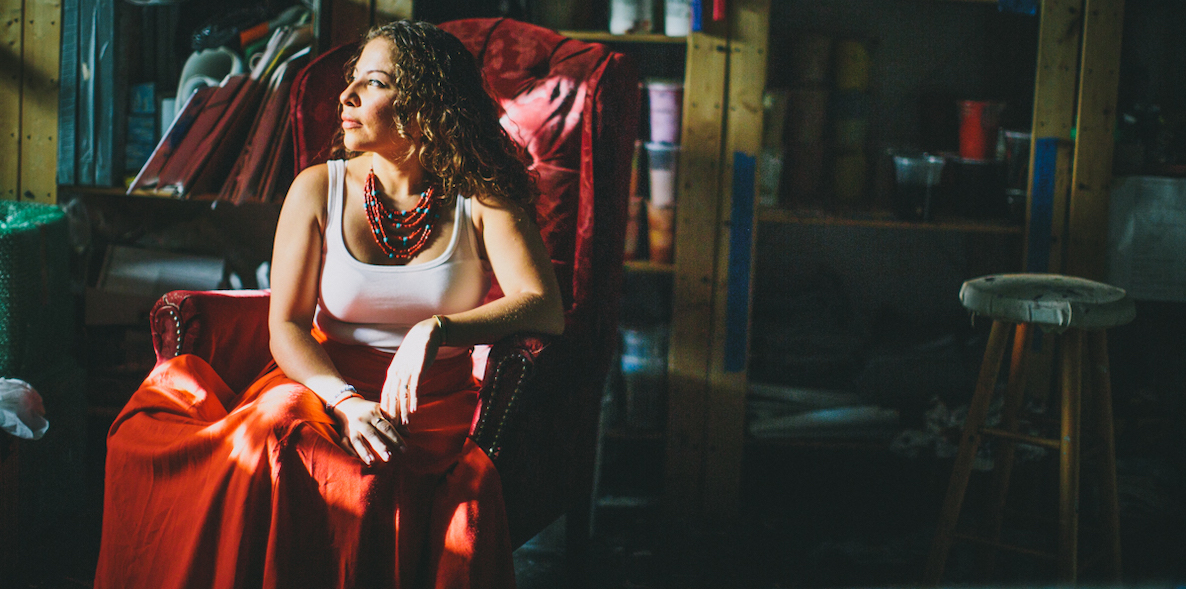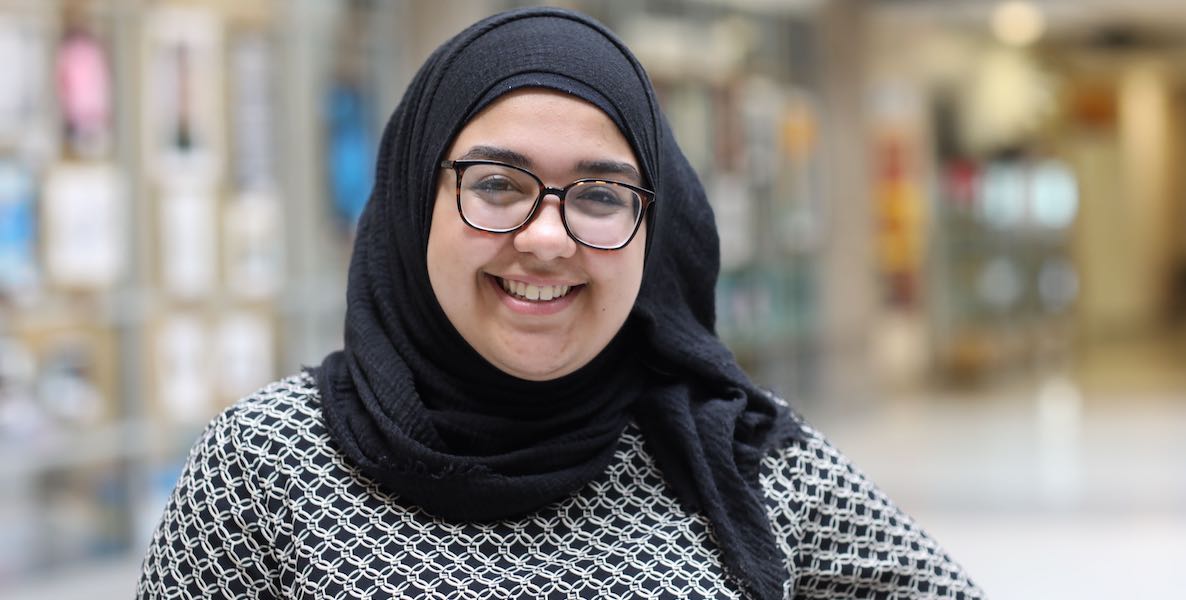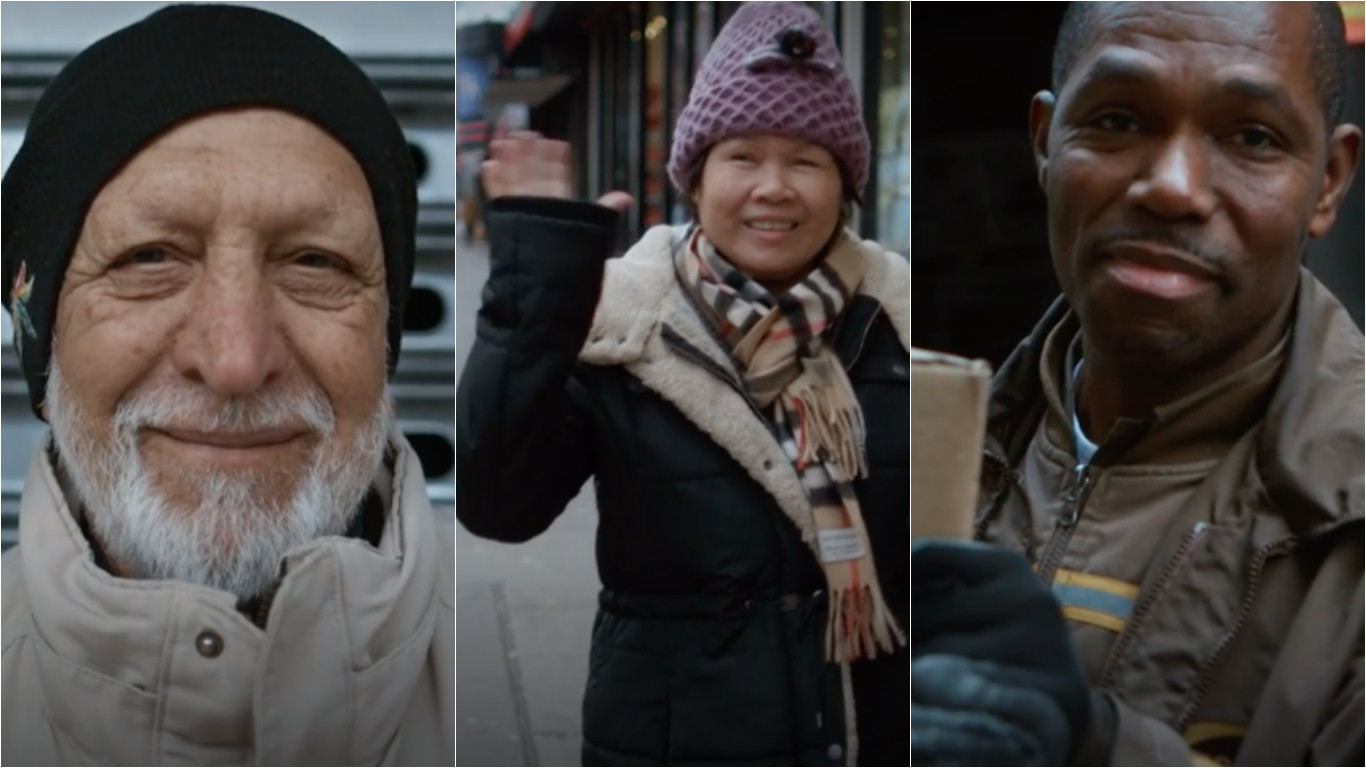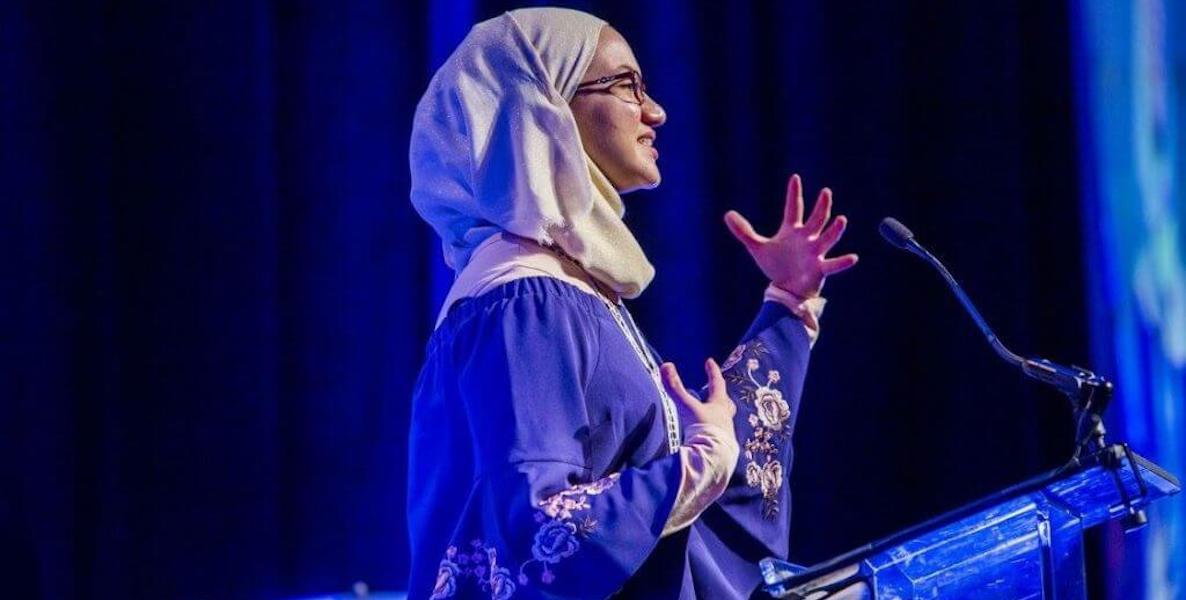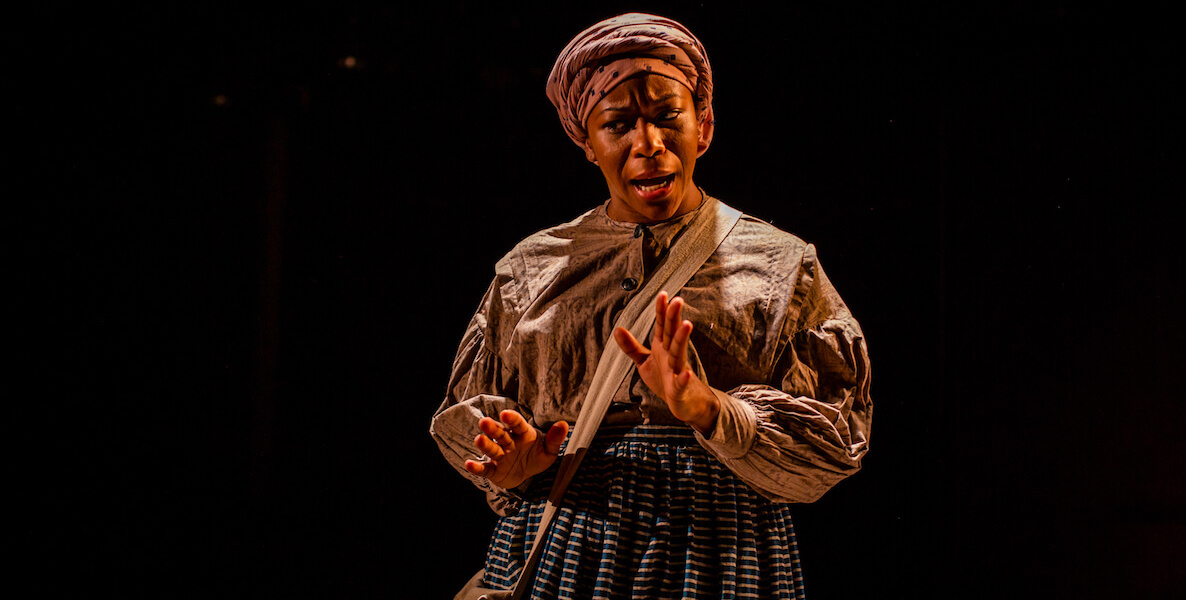As a college junior at Denison University in Ohio, which has a student body of 2,300, Sara Abou Rashed can count on one hand the number of students who, like herself, wear a hijab, the head scarf that many Muslim women wear.
“Wearing my head scarf has been the best and most challenging and uncomfortable thing in the world,” she says by phone one winter morning from Denison. “I came from a place where everyone wore it, and now just living, just breathing, just walking to class, just eating at the cafeteria, it is so much weight that I carry.”
![]() That poetic perspective underlies the writing Abou Rashed has done from the time she was a child—first in Arabic, while living in Damascus, Syria, and then in English in Columbus, Ohio, where she moved with her mother and grandmother at age 14 as the war in her homeland escalated.
That poetic perspective underlies the writing Abou Rashed has done from the time she was a child—first in Arabic, while living in Damascus, Syria, and then in English in Columbus, Ohio, where she moved with her mother and grandmother at age 14 as the war in her homeland escalated.
She immigrated to the U.S. not knowing English, but within two years she was fluent and soon started racking up accolades, such as winning the Ohio Poetry Association High School Contest, the Columbus City Poetry Slam Championship and the Denison Book Award. She has given a TEDx Talk, was nominated for a Pushcart Prize at 16 and performed at the Tenement Museum of New York.
Her poetry came to the attention of South Jersey native and Penn alum Larry Smith, famed as the creator of the Six-Word Memoir project (and for his marriage to Piper Kerman, whose memoir is the basis for Netflix’s Orange is the New Black).
Smith and Abou Rashed decided to collaborate, expanding a 15-minute reading Abou Rashed had performed into a breathtaking 75-minute show called A Map of Myself that has astounded audiences in theaters, mosques and schools. Later this month, it will come to Philly for two performances at InterAct Theatre Company.
Here, Abou Rashed talks about the evolution of her writing, the source of her strength, and her message to and about immigrants.
Jessica Press: Moving to a new country is never easy. Moving to a new country without knowing the language is even harder. Whom or what do you credit with easing your transition?
Sara Abou Rashed: My mother has always been my biggest supporter. She is phenomenal. She helped me translate every single textbook in high school and we would study together. I was always panicking and crying, and she had the patience and the belief and the commitment. She always says she allows me to do everything she never did.
My hope is that they take away the power of stories and the power of seeing humans closely and recognizing that every person we come across is a person, is a product of the stories they’ve lived.
When we first came to this country, she knew more English than I did, because she has a PhD in education from Syria, and now it’s a joke that I correct her English.
JP: What myths or misconceptions about immigrants do you feel strongly about dispelling?
SAR: There are as many ways to be an immigrant as there are immigrants. It’s really important to say that, because no matter what “type” of immigrant you are, there is always someone trying to see all other immigrants with that same lens. For example, if you are an immigrant who comes in, who learns the language quickly, who becomes successful really fast, then suddenly we expect all immigrants to be these super humans, these amazing, excelling citizens.
On the flip side, if you come in, if your economic status does not change, if you’re still suffering, if you do not speak the language very well, then suddenly you’re the person we don’t want, because you don’t belong, you don’t contribute to our society. I’ve been asked if the standards held for my work have been lower or higher because I have a story of immigration, and I would say they’ve been higher: I’ve had to prove myself a million times over.
JP: That feels like particularly meaningful insight for immigrant youth to hear. What else do you wish you could impart to young immigrants?
SAR: Well, first and foremost, I would say that it’s not even a figurative statement to say that America is a country for and of immigrants. It is literally that. And my message has been to embrace hyphenation.
Truly. I think we all carry different identities. We are complex. We contain multitudes. I’m noticing, now that I’m a little bit older and I visit high schools and middle schools, how afraid they are. It breaks my heart to think they need constant assurance to simply be themselves. It’s really sad to see. They’re not confident, they feel different, they’re overcome by that difference, by the fear.
To me, that’s when we fail as a society. We need to raise a confident generation. We need to raise a strong, empowered generation that can speak up.
JP: What has your experience wearing your hijab been like?
SAR: It’s true that it is so much weight that I carry, and at the same time I cannot imagine myself without it. There have been times when I admit, yeah, my life would be so much easier if I was not wearing a head scarf. But I think at some point every Muslim woman realizes that she’s wearing it more for herself and her identity than religion, perhaps. And it becomes such a part of you that you fight for and you fight with. It’s really empowering. It’s a mark of difference that I embrace, and is very loud in any room I enter: I don’t need to say anything to show the world the perspective I am coming from.
![]() It’s also benefited me greatly. It’s given me a voice. And people just come up to me sometimes and say the sweetest things and sometimes the randomest things. It’s just the best when someone says I’m also Muslim, and I relate to you. Or you’re brave for doing this. Things like that really keep me going.
It’s also benefited me greatly. It’s given me a voice. And people just come up to me sometimes and say the sweetest things and sometimes the randomest things. It’s just the best when someone says I’m also Muslim, and I relate to you. Or you’re brave for doing this. Things like that really keep me going.
JP: Let’s talk about the origin of your show, A Map of Myself. For starters, how did you come to collaborate with Larry Smith?
SAR: We met a few times. Once was in passing, at TedX Columbus. Then I attended one of his workshops on his six-word memoirs—I only went because I knew he was married to Piper Kerman! But I wound up contributing my six-word memoir, which said “Escaped war. War didn’t escape me.” And a few months later, Larry was looking through his notes and said, I need to find the person who said that. And that’s how we connected.
I was already doing short versions of my story at different venues. I was sharing poetry, slam poetry, I was invited to speak at different places, and normally I would tell a story of the show in about 10, 15, 20 minutes.
I got invited via Larry to The Tenement Museum of New York. I shared my immigration story alongside other people, and I realized that I really wanted to tell a longer story. And so for the next few months, I sat down and just wrote everything in pieces.
It took us months to put everything together, to edit, and themes started to emerge—talking about language, immigration, about places and locations. And I’m no actress—this is the first time I’ve done anything in theater. So it was a labor of love.
JP: What do you hope audiences will take away from the show?
America is a country for and of immigrants. It is literally that. And my message has been to embrace hyphenation. Truly. I think we all carry different identities. We are complex. We contain multitudes.
SAR: My hope is that they take away the power of stories and the power of seeing humans closely and recognizing that every person we come across is a person, is a product of the stories they’ve lived. So it’s really about making us more aware of the complexity of humanity and of the ways we are tied to the families and the locations we’ve been born into. Over the hour and 15 minutes of the show I’m constantly wrestling with who I am, who my family is, where we lived, where we were born.
JP: Do you ever have those “Sliding Doors” thoughts, wondering about your life now versus what your life would be like if you never left Syria, or had gone elsewhere?
SAR: Thank God I left with all positive memories, except a few at the end, and so I would say I’m very lucky in that I look back with fondness. Syria is a busy, happy place. People love to talk, to eat, to cook. They’re very generous, they’re very kind. It’s always awake. My mom and I always say it’s much like New York in its busyness and culture.
Sometimes I feel very much at peace where I am. And I am almost certain that no matter what country we fled to, after the war, or during the war, I would be doing the same exact thing. I don’t know where this certainty comes from, but I think it just feels like fate, it feels like destiny, it feels more like a life path and a story that chose me than a story that I chose. I think this is where I’m meant to be.
JP: Through your artistry, what has been revealed to you about home—what does home mean to you?
SAR: I think that’s the hardest question to answer throughout time. Home to me right now is wherever I feel comfortable enough to express my worries, my sadness. It’s very easy to think of home as the only joyful place. But I tend to think of it as a place where we can be vulnerable.
JP: Anything else you want people to know as they go into the show?
SAR: The thing people get wrong most of the time is my legal status: I’m a U.S. citizen. I’ve actually been a citizen since I was 5 years old. My mother’s side of the family has been here since the ’80s. So when we came here, it’s true that I didn’t speak English, but I was a citizen. And I actually came here two times when I was really young for vacation. So sometimes people call it a political refugee story, but it’s more of a “U.S. citizen with an immigrant story.”
JP: What can people in Philly do to support your work?
SAR: Show up, ask questions, stay curious. Listen to people. Engage with the arts, with politics. I think it’s really impossible to avoid politics, and art is kind of the nicest way to discuss politics. I would encourage people to live their life fully and lovingly towards all these different communities.
Friday, February 28, 8pm; Saturday, February 29, 2pm, $20 ($10 for students), InterAct Theatre Company, 302 S. Hicks Street.
This interview has been edited and condensed.



